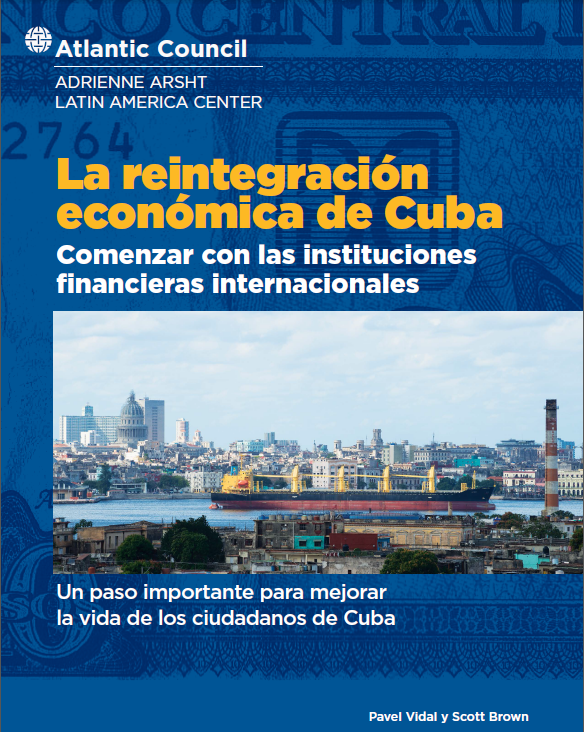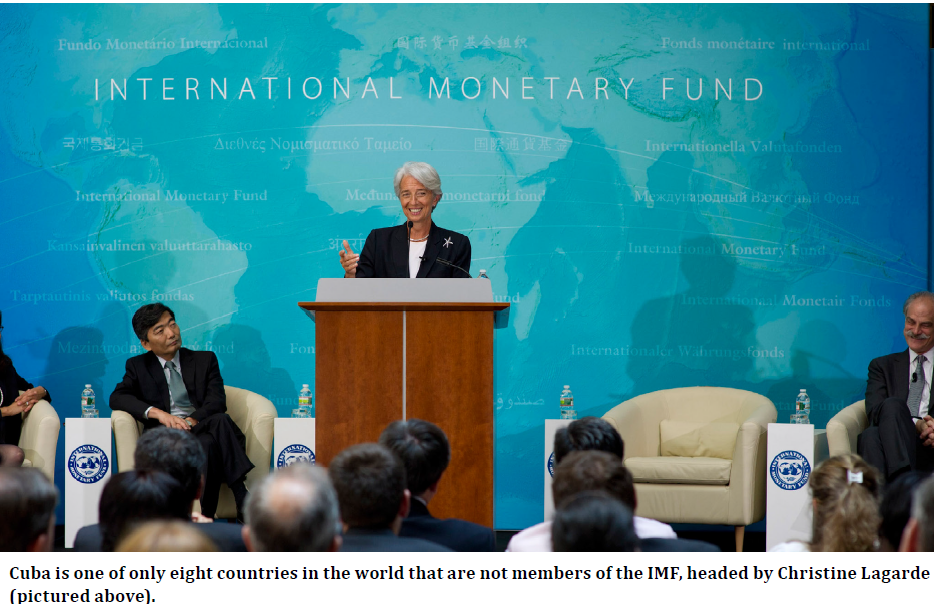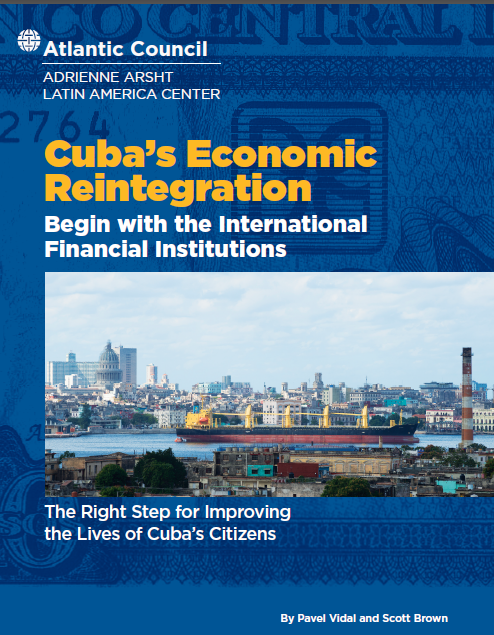The Right Step for Improving the Lives of Cuba’s Citizens; Un paso importante para mejorar la vida de los ciudadanos de Cuba
By Pavel Vidal and Scott Brown; for The Atlantic Council
English Version Here: Pavel Vidal & Scott BrownCuba_ and the IFIs, English.
Spanish Version Here: Pavel Vidal & Scott Brown, Cuba and the IFIs, Spanish
3 Executive Summary
5 Reforms Are Here… and More Are Coming
6 Why Join the IFIs?
An Economy with Promise but Needing Help
How the IFIs Can Assist
A Helping Hand in Tackling Pending Reforms
Challenges for the Cuban Government
How Can Cuba Gain Membership?
11 Global Experiences
Albania’s Entry into the Global Financial System
Sidebar: The Vietnamese Experience
16 Why Should the United States Support Cuba’s Reintegration?
What Is the Best Way to Help the Cuban People?
18 Recommendations for Cuba, the United States, and the International Financial Institutions
20 Endnotes
21 About the Authors
EXECUTIVE SUMMARY
The new US policy toward Cuba comes at a critical moment, with its impact reaching far beyond the Florida Straits. Since President Obama’s historic announcement in December 2014, Havana has welcomed the Presidents of France and Turkey, the Foreign Ministers of Japan and the Netherlands, the Director of Diplomacy for the European Union, the Governor of New York, and a host of other policymakers and entrepreneurs from the United States. Pope Francis is scheduled to visit in September.
Engagement will be critical to buttressing the government’s appetite for reform. After twenty-five years of post-Soviet adjustment and patchy results from limited reforms, a consensus exists that the economic system and old institutions require a fundamental overhaul. The Cuban government is cognizant of the imperative to allow the “nonstate,” or private sector, to grow. It is the only way to slim down the public sector without massive unemployment.
Now that Cuba has caught the eye of foreign investors and the international community, it is a good time to reignite discussion on Cuba’s reintegration into the global economy. As with so many other countries before, the critical first step will be to regain access to the international financial institutions (IFIs), with a particular focus on the International Monetary Fund (IMF), the World Bank, and the Inter-American Development Bank (IDB).
Accession would serve the interests of Cuba and its citizens, the United States, and the international community. In Cuba, the process of economic reform is at a pivotal moment, and more progress is needed to lift the economy on to a new growth trajectory before President Raúl Castro is to step down in 2018. Accession will require adjustments: improving data and transparency, aggressively working to unify the two currencies, and shifting official attitudes. But in the context of the new relationship with the United States, these should not be difficult.
The experiences of other former communist countries can provide lessons for Cuba. Albania, which joined the IMF in October 1991, has some interesting parallels. Albania’s first loan from the Fund, under a stand-by arrangement, was approved in August 1992, and its reengagement with the global financial system and policy reforms produced significant improvements in the standard of living. Vietnam offers another positive example, with access to IFI support coming after a period of initial reform. In both countries everything from GDP to life expectancy improved. These universal benefits are compelling factors for Cuba.
For the international community, Cuba’s accession is long overdue. Still, in the United States, agreement to Cuban accession could face objections. However, those objections rest on discredited assumptions that sanctions can bring political change and that international support will help only the government and not the people of Cuba. US backing of Cuban membership in the IFIs would be consistent with the new policy of helping to support economic reform. This is a unique opportunity to stimulate further transformations in Cuba.
Three possible approaches exist for Cuba to join the IFIs. The first would involve a gradual process of confidence-building between the IFIs and the Cuban authorities, with no initial commitment or date for membership. The second would be a more direct and immediate path, beginning with a Cuban decision to apply for membership. The third would be for President Obama to take the initiative by making a public statement of support for Cuba’s accession to the IFIs, claiming his constitutional prerogative to define the direction of US foreign policy—much like the leadership by President George H. W. Bush in advocating for Russian engagement and membership in the IMF in 1991-1992.
This report argues that a series of steps can be taken now—by Cuba, the United States, and the international community—to pave the way for Cuba to be welcomed back as a full and active member of the international financial institutions.




